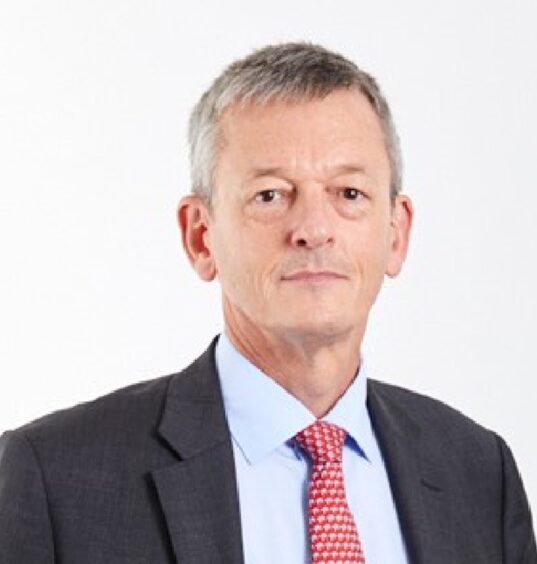
With the UK investment climate for conventional oil and gas increasingly uncertain, industry participants across the board – and on both sides of the fence – have weighed in in recent weeks to express concerns and constructive viewpoints on the energy security paradigm.
Mark Routh is a petroleum engineer with more than 40 years’ experience in the oil and gas industry, covering executive management, commercial/asset management, area management and technical roles at companies such as CH4 Energy, Independent Oil & Gas and Warrego Energy. Prospex has three producing gas assets in onshore Europe – two in Spain and one in Italy – and is looking to grow via further acquisitions and developments in Europe.
Energy Voice: What is your perspective on the current investment situation in the UK? Would Prospex consider investing in UK assets?
Mark Routh: I think that investment in the UK under the current regime is going to be even harder than it was before. As the CEO of Independent Oil and Gas (IOG), when I left at the end of 2018 it was difficult to get meetings with institutions. Some institutions wouldn’t take a meeting with companies that had anything to do with fossil fuels. So, it’s a bit of a no-win situation.
Has Prospex looked at any investments in the UK recently?
We did evaluate some opportunities onshore in the UK and we didn’t proceed with them purely on the technical merits – not on any political or commercial merits.
When my team look at opportunities, our adage is that if the rocks can produce the hydrocarbons, then we’ll look at the commercial aspects of the deal. But if the rocks don’t produce the hydrocarbons or it looks too difficult, or the economics don’t look right, then we won’t even try and progress the commercial side of the deal.
What are the pros and cons of investing in Europe and how does that contrast to the current situation in the UK?
They both have their challenges. My last experience of the regulator in the UK was when I was at IOG some years ago, and we’ve yet to see how things have changed – because I think that, although we’re all going for energy transition, unless the current regime, the government, does something about energy security in the UK we are possibly going to head for brownouts or blackouts, as a result of lack of investment in gas – in particular because gas is the go-to fuel when the wind doesn’t blow and the sun doesn’t shine.
The transition is going to take many years. You can’t switch to renewables overnight so really, to answer your question, the UK has a challenge and I think – I hope – that common sense will prevail.
To compare the regulator in Europe to the UK, quite frankly, regulatory approvals in Spain can be extremely slow and they also have a green agenda because they have a hung parliament there. They passed the Climate Change Act in May 21, which banned all future onshore exploration. The ban doesn’t apply to existing concessions and Prospex is now in two of the three onshore gas fields in Spain.
The Spanish government realises that energy security is important, as has the Italian government, who renamed their Ministry of Environment and Energy Security. So, we’re seeing a sea change in Italy already.
In terms of the attitude towards onshore gas developments, we’re actually being encouraged by the regulator to get on and approve permits to drill new wells there.
With the proposed rise in windfall taxes for oil and gas companies, what do you see as the long-term impact it’s likely to have on the UK economy?
I think the windfall tax is going to make investing in UK oil and gas even harder, especially when you take into account the time it takes to bring wells to production. The complexity and layers to development, including all the environmental requirements – which are fair enough – it’s the law of the land and I don’t object to that, but all the changes to the regulation may result in less investment and impact energy security in the UK.
You will also need to consider the lack of appetite and investment attitudes towards fossil fuels. It would be fair if we had a level playing field. There are industries which have similar if not greater carbon footprints, but less is said about the carbon footprint of renewable energy or the mining industry, which is where you need to mine copper, lithium, manganese, vanadium, sulphur – you name all of the minerals that you need that go into solar panels.
So, what could the UK government do to better promote ongoing essential investment in the oil and gas sector? It might not be fashionable, but it remains fundamental to our way of life and a coherent transition.
I think it has to recognise that natural gas is a transition fuel to get us to where we need to be, and that local indigenous gas is far better than importing LNG. We’re still importing LNG in the UK and Spain is the largest importer of LNG in Europe.
So, I think that economies would benefit from local natural gas extraction, and the whole attitude towards fossil fuels has got to change – but I really think that small independent companies should have a voice in trying to change the attitudes of nations and some people who, frankly, have become hysterical about the impact of climate change.
In the context of the UK’s net LNG import dependency, what is your view on how to enable the UK to become more energy independent generally?
There are ways to unlock a huge resource in the UK, offshore and onshore. There are gas reserves that could be accessed with changes of policies. Innovation is key and as an industry we have the technology to allow natural gas extraction to be done safely and in a more environmentally friendly way. These technologies are being used in other countries.
In particular, the US is now a net exporter of gas and LNG to the world, and the economy of the US has blossomed and boomed on the back of low energy costs – the cost of gas in the US is a fraction of what it is in Europe.
So, there isn’t really any immediate prospect for something similar in the UK, and that’s mostly just down to uncertainty and the emotional climate?
As mentioned earlier, we have evaluated some opportunities in the UK, but the ones we looked at we rejected for technical merits – not for any of the political reasons that we’ve discussed. The political landscape is changing, but I think it’s going to settle in a, hopefully, common-sense place.
I think we will have to wait and see. Everyone’s waiting for what’s going to happen in the budget at the end of October. And all sorts of things could change, but one thing is for sure: energy security is second only to the security of the nation, and I just wish governments would really attend to energy security – because if the lights go out, you don’t have anything.
Recommended for you

